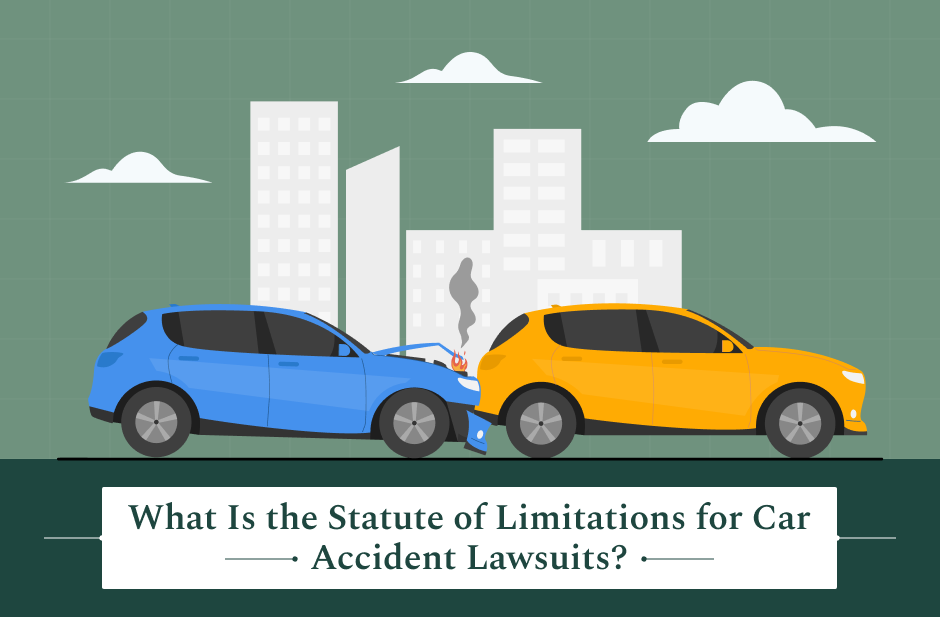Car wrecks don’t just leave dents in your car—they can leave you rattled, sore, and completely overwhelmed.
People talk about the pain or the stress, but honestly, what gets overlooked a lot is the legal side. Like, there’s this deadline most folks don’t even think about until it’s too late.
Lawyers call it the “statute of limitations,” but really it just means: how long do you have before the door slams shut on filing a lawsuit?
It sounds boring, sure, but if you miss it, that’s it. No redo. Let’s walk through why it matters, what messes with it, and how to not get caught sleeping on it.
So, if you are also wondering what the statute of limitations for car accidents is, you are at the right place. In this blog, I am going to delve into the diverse aspects of the legality surrounding car accidents.
So, keep reading to know more!
What Is The Statute Of Limitations For Car Accidents?
Basically, it’s a countdown timer. Different states, different rules, but the idea’s the same.
If you don’t act in time, your right to sue is gone. Courts set these limits so cases move forward while evidence and memories are still fresh (because let’s face it, people forget things fast).
And if you’re in Vegas, places like Centro Legal Hispano de Las Vegas deal with this stuff every day—worth a call if you’re unsure.
How Does It Vary Under Different Jurisdictions?
Here’s where it gets messy. The time window isn’t the same everywhere. Some states say two years, others stretch it out to five or six.
Sounds like a lot of time, but it goes by quicker than you think. A lot of folks assume they’ve got forever, then realize too late they’re already out of luck.
So yeah—checking your local law isn’t optional, it’s survival.
What Factors Influence The Timeframe For Filing Claims?
Not every accident claim plays by the same rules. If it’s personal injury vs. just a busted car, the deadline can change. Throw in a government vehicle?
The timeline can shrink real fast. If a kid’s involved, though, the rules bend the other way—the clock usually pauses until they’re grown.
Basically, it’s not one-size-fits-all, and those little details can make or break a case.
Some Exceptions And Extensions For Filing Claims
Yes, there are curveballs. Lawyers call it “tolling,” which just means the clock stops under certain conditions.
Say someone’s in a coma, or the driver skips town, the countdown might hit pause. But don’t get too comfortable—courts don’t just hand these out like candy.
You’ve got to prove it, and it’s not automatic. People who assume they’ll get an extension often end up burned.
The Importance Of Taking Timely Action After An Accident
Here’s the blunt truth: if you miss the deadline, the case is dead. Doesn’t matter if you’re 100% right. That’s why moving fast is everything.
Evidence disappears, witnesses move, people forget. File sooner, and you keep the upper hand. Wait, and it’s like trying to run a race after the gun’s already gone off.
Why Should You Seek Legal Guidance For Car Accidents?
Look, the legal system isn’t something you wing. A good lawyer doesn’t just file papers—they map out deadlines, interview people, and make sure you don’t miss one technicality that tanks the whole case.
In addition to this, an experienced lawyer will help you understand the legal intricacies of your case. So, you can better handle the process without facing any issues.
Moreover, your car accident lawyer can help in protecting your rights and interests while fighting for your case. So, they can represent you on court and handle the case on your behalf.
Apart from this, your car accident lawyer can help draft the compensation claim for your losses. So, by evaluating your economic and non-economic losses, they can draft the settlement amount.
Additionally, they can negotiate with the insurance companies on your behalf to ensure you get the maximum compensation for your losses. So, you can focus more on recovering from your injuries while they handle your case.
Even one sit-down with an attorney can flip the whole picture from confusion to clarity.
Steps To Take After A Car Accident
After a crash, you’re shaken up, maybe in pain, but you still have to think ahead. First thing—see a doctor, even if you feel “fine.”
Take pictures, grab the police report, and get witness info. Those tiny details—like the weather, skid marks, whatever—can save you later. Skip these steps, and your claim’s already on shaky ground.
Impact On Insurance Claims
Here’s something people mix up all the time: the lawsuit deadline and the insurance company’s deadline aren’t the same. Insurance wants notice fast—sometimes within days.
Wait too long to call, and they’ll use it against you, even if the statute of limitations is still open. Moral of the story: call early, then deal with the rest.
Common Misconceptions About The Statute Of Limitations
This part trips people up. A lot of people think the clock starts when they “feel” the injury—nope, it usually starts on accident day. Some also believe extensions are automatic. They’re not.
These little myths cost people money all the time. Better to know the real deal now than learn it the hard way.
Read Also: What Is The Statute Of Limitations On A Case Dismissed Without Prejudice?
Your Legal Guide On The Statute Of Limitations For Car Accidents
At the end of the day, knowing your statute of limitations for car accidents can save your case.
The window to file changes depending on where you live and what happened, but either way, the sooner you move, the stronger you stand.
Moreover, taking the help of a legal representative can further smooth out the intricate process of filing a case, negotiating the claim, and other legal aspects.
Don’t gamble with time—get answers, get a lawyer if you can, and don’t assume the rules bend for you. Understanding the limits now gives you the best shot at the compensation you deserve.
















